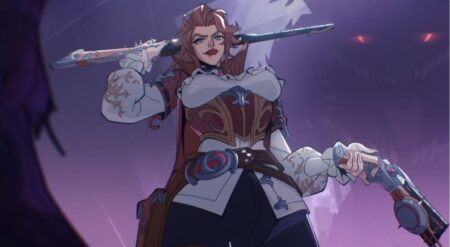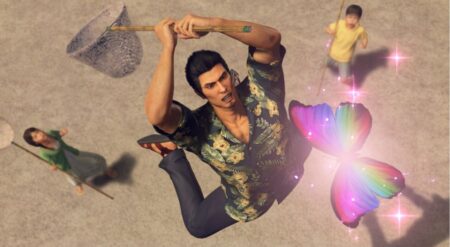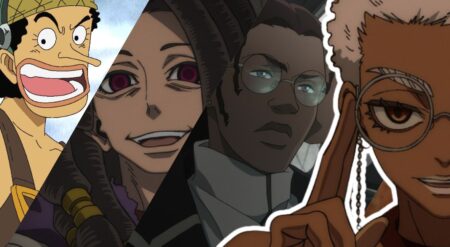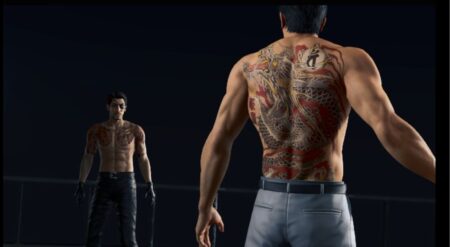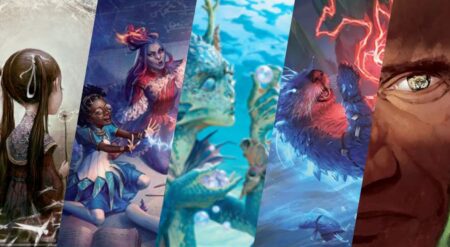
I was obsessed with The Craft (Andrew Fleming, 1996) when I was a kid because it was cool to see a group of girls with powers. My cousins and I even tried light as a feather at slumber parties. But the movie didn’t hold up for me when I watched it again as a teenager, sadly I was more annoyed that their Catholic school allowed them to have nose-rings and change their uniforms. I don’t think I actually paid attention. So, when it came back to Netflix on March 1st, I figured I’d give it a go (thank you Faculty of Horror podcast).
With a background in anthropology of religion, I could easily talk for days about the way The Craft treats the girls’ witchcraft as a religious experience, instead of a fad. In fact, they sought information from practicing Wiccans to inform this representation. But what matters about the film for me, are the girls more than the witchcraft.
There are a lot of heavy things happening in The Craft. Rochelle (Rachel True), who seems to be the only person of color in the school, is dealing with an overtly racist mean girl. Bonnie (Neve Campbell) is constantly called/treated like a “monster” because of her scars, leading her to hate herself. Nancy (Fairuza Balk) has an abusive “father figure” who attempts to look under her robe and she can’t escape to the sanctity of her own room because the constant leaking roof destroys the safe space of her bed.
The girls, referred to as the Bitches of Eastwick (BOE — a term I’m going to use because they are awesome and unapologetic which is why the men add the B to the phrase) are outsiders who are trying to find empowerment through the fictitious deity Manon.
Then enters Sarah (Robin Tunney), the protagonist. Initially, she shuns the BOE but when she denies sex to the popular boy of the school (Chris) and he spreads lies that she’s a bad “lay,” they’re there for her. As a natural witch, Sarah takes to the craft quickly and the girls begin punishing those who have hurt them.
Rochelle causes racist Laura Lizzie’s hair to fall out, Bonnie embraces her body after magically removing her scars, and Sarah makes Chris fall in love with her. Out of the four, Nancy’s spell is deeper. She kills her “father” from which, she and her mom receive a very large pension. It’s easy to see this as a shallow move, made just for money. But for Nancy, it was about removing the violence from her life and finally being able to have safety, from their abuser and a roof that doesn’t leak and electricity that stays on.
The money matters, in that it elevates her from “white trash.” We’re made to feel more sympathetic towards Nancy than any other character until the final act. We know that Sarah’s mother died in childbirth and for some reason, she was alone in her home-town and she attempted suicide. However, her depression is never really explained and her family seems loving, caring, and if not rich, well-off. The suicide element seems to be more for the final showdown than any real look at who Sarah is as a person. In my younger years, I had no problem identifying Sarah as a hero. She did not want power for the sake of power, which is what we’re made to believe drives Nancy insane. But I want to make a case for Nancy here.
Nancy doesn’t want power for the sake of power either. She wants to be in control of herself. Those who die in The Craft are her attackers and aren’t entirely innocent. The death of the “father” is obvious, but I argue, even the killing of Sarah’s love-spell-ridden popular boy is just as obvious. Although we’re supposed to feel bad for him, Nancy points out in one of her “scarier” moments, that he has done nothing but treat women like “whores” and objects. She refutes his apology and he falls to his death. It’s also important to note that he attempts to rape Sarah in the scene immediately before this.
He’s not harmless, however, the argument can easily be made that the attempted rape is the side-effect of the love spell. This is why Nancy brings up his past transgressions against her and other girls at the high school. For the rest of the coven, Sarah seems bothered by Bonnie’s vanity, as she really causes no harm until the final act (which is against Sarah). Her change from a nice girl to the beautiful mean girl is what Sarah see’s as wrong. Rochelle doesn’t even kill Laura, she just disfigures the girl who called her a slur.
Although we are supposed to see Sarah as overcoming this self-serving magic, I don’t think the other BOE have done anything terribly wrong, aside from killing Chris (which is debatable). Even in the ultimate showdown between Sarah and the girls, the empowerment is the center. Nancy is stronger initially because she has invoked Manon. So, Sarah then evokes the good(?) side of Manon to fight the dark side embodied by Nancy. As Sarah triumphs and we’re supposed to be happy that she won, I felt empty. I was sad for Nancy, and Sarah’s revelry in her institutionalization is unsettling.
Nancy, Rochelle, and Bonnie don’t attack Sarah without reason. They attack because she presents a real threat to their newfound empowerment. They fear going back to the powerless outsiders and I don’t think we can blame them. Sure they shouldn’t have tried to make Sarah kill herself, I got that. And yes, murder is wrong. But these girls were fearful. Which I believe makes a good case for them.
Ultimately, this film is heavier than I remember and it has staying power. Even with the bad CGI, the complexity of the characters and the overall gray area that they exist in is striking. I walked away more #TeamNancy than anything else. Give it a re-watch or watch it for the first time, and let me know what you think! It’s available on Netflix.

